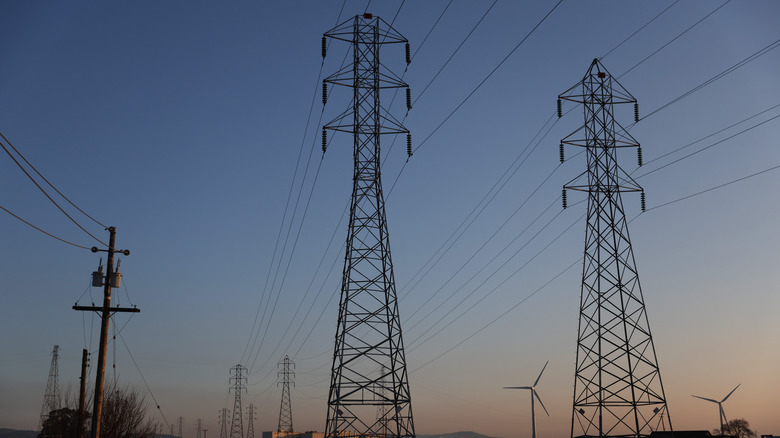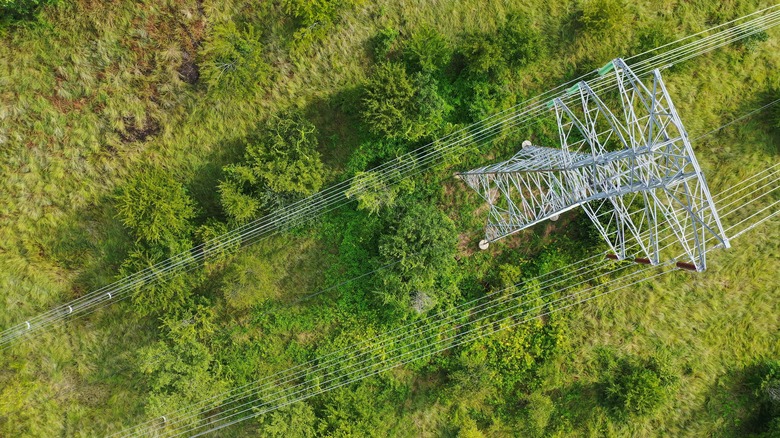What Is Energy Terrorism?
ABC News reports that Ukraine accused Russia of using "energy terrorism" as an intimidation tactic during the 2022 war. According to CNN, 4.5 million people across Ukraine were reportedly left without power after Russia attacked the country's energy infrastructure. With winter approaching at the time, the Ukrainian people feared that the lack of energy and power would be deadly in the coming months. Besides having no electricity, this situation can mean less food, heat, and water. The attack prompted Ukrainian President Volodymyr Zelenskyy to state (via ABC News), "The very fact that Russia is resorting to energy terrorism shows the weakness of our enemy."
According to research done by the National Consortium for the Study of Terrorism and Responses to Terrorism, energy terrorism is common in countries like Pakistan, Yemen, and Columbia. An article in the journal of Energy Research & Social Science explains that energy terrorism is especially strategic. First and foremost, it can be used as a monetary resource. In some cases, terrorists can extort money by threatening to attack an energy system or facility. Moreover, they could kidnap energy workers or steal oil for financial gain.
This is why energy infrastructures are targeted
Per an article in the journal Energy Research & Social Science, energy terrorism is intended to cause chaos and destroy a government's sense of stability. CNN states that this is likely the approach that Vladimir Putin is taking in regard to Ukraine. In other words, energy terrorism is and can be used as a weapon. After all, the National Consortium for the Study of Terrorism and Responses to Terrorism states that energy terrorism can heavily damage civilization in more ways than one.
"Terrorism and the Electric Power Delivery System" (via National Academies of Sciences, Engineering, and Medicine) writes that this is due to the simple fact that electricity is used in nearly every facet of modern society, including in health care, the economy, and much more. Beyond disrupting daily life, energy terrorism could show the intended target of the terrorist's strength and lead others to join their side or movement. All in all, energy terrorism aims to cause fear in citizens and put pressure on authority.
Could energy terrorism occur in the United States?
Per the journal of Energy Research & Social Science, energy terrorism is not a tactic that is readily used. That being said, the U.S. Department of Justice's Office of Justice Programs states that the chances of energy terrorism occurring in the United States are low. Even so, the agency notes that there is always a possibility of domestic energy terrorism. This could ultimately affect energy infrastructures, oil and gas pipelines, and more. According to "Terrorism and the Electric Power Delivery System" (via the National Academies of Sciences, Engineering, and Medicine), the United States is at risk due to various factors. For example, some facilities lack extensive security, and their energy grid is not as powerful as it should be.
"Terrorism and the Electric Power Delivery System" adds that our energy infrastructure consists of transmission lines. If these are damaged, they cannot be easily repaired. Furthermore, the country's energy system could be attacked without warning. Ultimately, this could cause some regions in the United States to go without power for an extended period of time. However, the Office of Justice Programs explains that the country has been spared from energy terrorism due to the number of energy facilities that are located abroad. These, rather than domestic facilities, are usually the intended object of terrorists.


